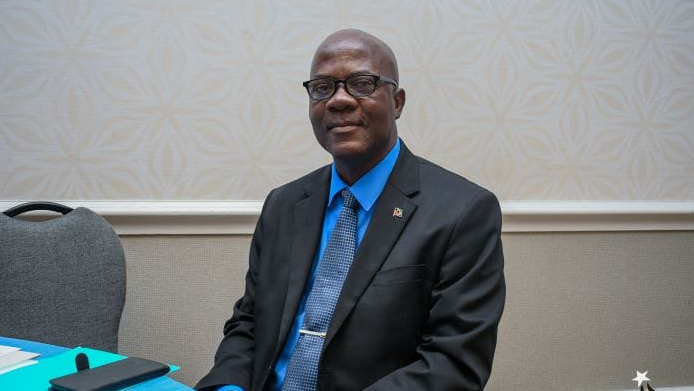Saint Kitts and Nevis Participates in Global Platform for Disaster Risk Reduction in Geneva
The Federation of Saint Kitts and Nevis took center stage at the Eighth Session of the United Nations Global Platform for Disaster Risk Reduction (GP2025) held in Geneva, Switzerland, from June 2nd to 6th, 2025. Permanent Secretary Glenroy Blanchette, representing the Ministry of National Security, addressed the high-level gathering, emphasizing the urgent need for global action to mitigate disaster risks and achieve the targets set by the Sendai Framework for Disaster Risk Reduction by 2030. The GP2025, organized by the United Nations Office for Disaster Risk Reduction (UNDRR), provided a crucial platform for leaders and stakeholders worldwide to evaluate progress, exchange strategies, and reinvigorate commitment to building resilience against the escalating threat of disasters. Blanchette’s address, delivered on behalf of Prime Minister and Minister of National Security Dr. Terrance Drew, underscored the Caribbean region’s significant strides and persistent challenges in disaster risk reduction.
Blanchette’s address highlighted the Caribbean’s recent hosting of the Sixth High-Level Meeting of Ministers on the Implementation of the Sendai Framework in December 2024, a significant regional effort co-chaired by the Caribbean Disaster Emergency Management Agency (CDEMA). This meeting, with participation from 27 countries and 3 overseas territories, generated valuable outcomes that are already influencing regional policy and practice in disaster risk reduction. He emphasized the limited time remaining to achieve the Sendai Framework targets and called for renewed momentum in global efforts. He stressed that for Saint Kitts and Nevis, and the wider Caribbean and Americas, this is a critical juncture requiring reflection, recommitment, and accelerated action to enhance resilience against disasters.
The Permanent Secretary outlined key areas where the Caribbean has made considerable progress, including the creation of a regional monitoring and accountability mechanism involving 16 countries, enhancements in multi-hazard early warning systems, and increased integration of disaster risk reduction with the Sustainable Development Goals and the Paris Agreement. These initiatives, he emphasized, are not merely abstract innovations but vital, life-saving tools that contribute significantly to regional disaster preparedness and response. However, despite these advances, Blanchette acknowledged persistent challenges, particularly regarding disaster risk financing. He warned that investments in risk reduction are not keeping pace with escalating needs, and access to funding for local governments remains a significant obstacle.
Looking forward, Blanchette articulated six priority areas crucial for building resilience in the Caribbean: enhanced risk knowledge and data utilization, universal access to early warning systems, investments in resilient infrastructure, financial preparedness for recovery, empowerment of local governments, and strengthening the resilience of Small Island Developing States (SIDS). These priorities represent a comprehensive approach to disaster risk reduction, encompassing preparedness, mitigation, response, and recovery. He stressed the importance of a proactive and holistic approach to address the multifaceted challenges posed by disasters in the region.
Furthermore, the Permanent Secretary shared three transformative lessons learned from the Caribbean’s experience in disaster management: the implementation of CDEMA’s Comprehensive Disaster Management (CDM) Strategy and the Antigua and Barbuda Agenda for SIDS; the establishment of cross-sectoral financial partnerships to unlock disaster financing; and the adoption of a whole-of-society approach that prioritizes the voices of marginalized groups, including women, youth, indigenous communities, and persons with disabilities. These lessons highlight the importance of integrated strategies, inclusive participation, and innovative financial mechanisms in building resilience against disasters.
In concluding his address, Blanchette reiterated the Caribbean’s commitment to the Sendai Framework and urged global collaboration to accelerate progress towards its targets. He called for decisive action, wise investments, and bold collaboration to protect lives, livelihoods, and development gains across the region and beyond. Saint Kitts and Nevis’s participation in the GP2025 underscores the nation’s proactive leadership in disaster risk reduction and its commitment to ensuring the safety and well-being of its people in the face of a changing climate. The nation’s efforts to strengthen its resilience against disasters serve as an example for other countries and contribute to the global effort to mitigate the devastating impact of disasters.
Share this content:












Post Comment